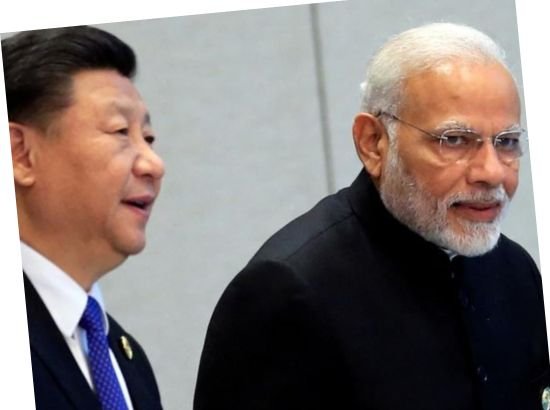
Modi-Xi Jinping Summit in China Today: Border Tensions, Trade, and Terrorism on Agenda; U.S. and Pakistan Closely Watching
Prime Minister Narendra Modi is set for a high-profile bilateral meeting with Chinese President Xi Jinping in Tianjin today, marking his first visit to China in seven years. Modi arrived in the port city on Saturday evening to attend the Shanghai Cooperation Organization (SCO) summit, at a time when the global order is being reshaped by trade instability and new strategic alignments.
The meeting between Modi and Xi is being watched carefully by both Washington and Islamabad. The U.S., already in a tariff dispute with India following President Donald Trump’s latest trade policies, is monitoring how this engagement could shift power balances in Asia. Pakistan, meanwhile, is concerned that Modi may push Beijing to take a stronger stance on cross-border terrorism.
For the past year, India and China have been engaged in talks to ease long-standing tensions along their disputed border. Some confidence-building measures have already been implemented: the resumption of the Kailash Mansarovar pilgrimage for Indian devotees and the restoration of tourist visas for Chinese nationals.
Modi’s bilateral with Xi is being seen as the most crucial moment of his China trip. Officials suggest that the Indian Prime Minister wants to take the relationship forward from a long-term, strategic perspective, particularly after five years of military stand-offs that strained ties.
Modi announced his arrival in Tianjin on social media platform X, writing, “I have reached Tianjin to participate in the SCO Summit. I look forward to deliberations and meetings with various world leaders.”
Apart from Xi, Modi is also expected to meet Myanmar’s Acting President and military chief, Min Aung Hlaing. Since the 2021 military coup, India’s high-level engagement with Myanmar has slowed. Today’s meeting will be Modi’s second with the general this year, where he is likely to emphasize the need for restoring democracy and ensuring inclusive, credible elections in the country.
Economic cooperation will be a major theme of the Modi-Xi talks. India is keen on building a more balanced trade partnership with China and ensuring a steady supply of critical imports such as rare earth minerals, fertilizers, and machinery. Earlier this year, Chinese Foreign Minister Wang Yi assured India’s External Affairs Minister S. Jaishankar that Beijing would lift restrictions on some of these essential exports.
Perhaps the most sensitive subject Modi plans to raise is cross-border terrorism, particularly in light of the recent terrorist attack in Pahalgam, Jammu and Kashmir. Indian officials believe that if China issues even a symbolic statement condemning the attack, it would deal a significant diplomatic blow to Pakistan, which faces growing international scrutiny over its terror networks.
This Modi-Xi meeting comes at a delicate time. India-U.S. relations are being described as at their lowest point in decades, while Washington has been trying to use groupings like the Quad to counter Beijing’s growing influence. For New Delhi, strengthening ties with Beijing while balancing its partnership with Washington presents both a challenge and an opportunity.
As the two leaders sit down in Tianjin, the world will be watching closely — not only to see whether Modi and Xi can recalibrate India-China relations, but also to understand how their dialogue will reshape broader geopolitical equations in Asia and beyond.